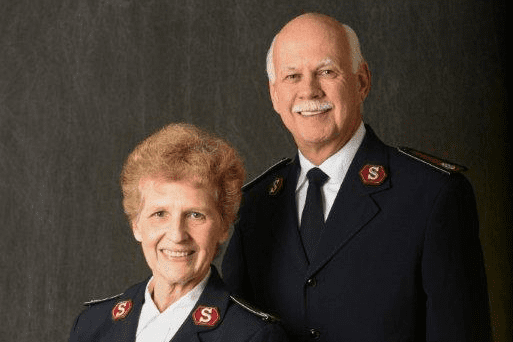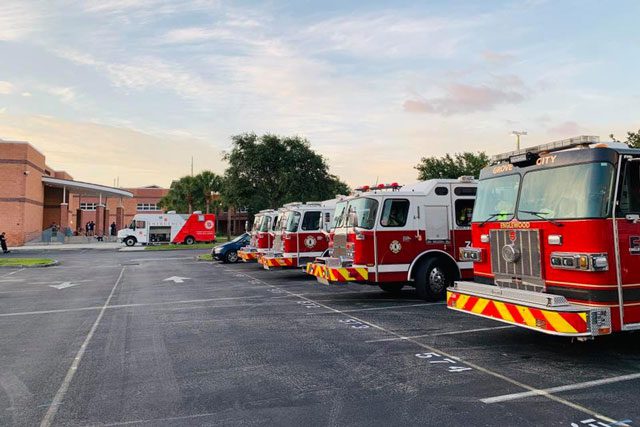
by Frances Dingman –
Today, the door to the White House is usually open when the General of The Salvation Army visits the United States. In its infant days, however, this was an honor not accorded the Army.
Thanks to the Auxiliary League, begun during the tenure of Commander Ballington Booth, prominent friends helped make The Salvation Army’s work known and arranged for presidential meetings.
The first such visit was when Senator Mark Hanna of Ohio introduced General William Booth to President William McKinley. The President stated, in recommending its work, “My observation is that The Salvation Army has earned and enjoys the respect of all good people without reference to creed.”
Theodore Roosevelt
The March 7, 1903, New York War Cry chronicled the honors given to Booth when he offered a special prayer before the Congress and accompanied Senator Hanna in his carriage to have luncheon with President Theodore Roosevelt. Also present were National Commander Frederick Booth-Tucker and his wife, Consul Emma Booth-Tucker, the General’s second daughter.
They were joined by the Honorable John Hay, Secretary of State; Hon. Elihu Root, Secretary of War, and the Hon. Ethan A. Hitchcock, Secretary of the Interior. As the President engaged in conversation with the General, “it was not difficult to see that the statesman-like side of [Booth’s] character made a deep impression. Accustomed as they were to dealing daily with the greatest diplomats and statesmen of the day, the General seemed to take his place among them, not merely as a Prophet of the Poor, but as a practical and shrewd man of affairs, whose vast experience and keen common sense commended his words and views to their judgment.”
The President seated the General at his right for the luncheon, and conversed freely with regard to the Army’s methods for dealing with poverty, vice and drunkenness. Roosevelt was heartily in favor of all efforts to secure the restoration and permanent reform of the criminal, finding the General’s figures in this respect both cheering and remarkable.
Irrigation, a subject vital to the Farm Colonies then under way, was also a deep interest of the President. He only regretted that difficulties made progress for the time being less rapid than conditions called for.
Administrative affairs from Venezuela to the Philippines, from Panama to Alaska, were discussed, with “no problem so minute as to escape his notice.”
It was three o’clock when the President bade a cordial farewell and Godspeed to the leader of what was probably the “greatest spiritual democracy of the age.”
The group’s “frank and unstinted recognition of the services which The Salvation Army had rendered in the past, and their confidence in its future, cheered the General as he turned from the executive mansion to grapple with the hearts and consciences, the sins and sorrows, of the multitudes of this and other lands.”
Presidents Laud Army
Through the years, U.S. presidents have had warm words to say about the Army’s work. When word reached home about the work of Salvationists on the front lines in France, the organization received more public attention in the form of financial support to carry on its mission of saving souls. President Woodrow Wilson said, “I sincerely wish Godspeed to any organization which, like The Salvation Army, has as its main object the betterment of humanity and the making of bad citizens into good ones.”
“…They are the image of service,” said President Warren G. Harding. “The most helpful service in the world…and surely deserve well of all appreciative and loyal Americans.”
According to President Calvin Coolidge, “It is a comfort and inspiration to know that great as are the forces of evil, there is a power for good like The Salvation Army, which, despite its amazing growth, adheres to the simple purpose which called it into being.”
“The Salvation Army,” he said, “is one of the noble bands of devoted men and women who have accepted and are faithfully executing the divine commission of rescuing their unfortunate fellow-creatures from the bondage of sin or sorrow, and of helping them to ‘rise on stepping-stones of their dead selves to higher things’.”
Some may recall that under the administration of President Dwight D. Eisenhower, the words “under God” were added to the Pledge of Allegiance. “There is no one in the United States who needs to be told or reminded that all free civilization rests upon a basis of religious faith,” he said.
President John F. Kennedy said, “I want to add my name to the long roster of Americans who subscribe to the ideals and virtues which The Salvation Army carries into our daily living. For the spiritual fires you have kindled, for the many bounties you have bestowed and for the helping hands you have offered, I send you my warmest greetings on this observance of National Salvation Army Week, with my best wishes for a continuation of the benevolence with which you touch so many lives.”
President Lyndon Johnson congratulated The Salvation Army in 1965, saying, “Your century of humanitarian work has transcended race, color and creed to bring succor and renewed faith in life to people in all parts of the world. Through your efforts, millions of human lives have been sustained and enriched. You have encouraged dispirited youth; you have comforted and reassured the fearful and uncertain elderly; you have fed and sheltered families and individuals who were hungry and homeless–and the world is a better place in which to live.”
National Commander Commissioner Robert Watson recently wrote President Bill Clinton to congratulate him on his election to a second term. The President’s reply is as follows:
“Thank you for your thoughtful letter. Hillary and I are deeply grateful for your and your wife’s concern and prayerful support for our family. We continue to be sustained and strengthened for the challenges we face daily by God’s love and by prayers of the faithful.
“At this special time of year, I am always reminded of The Salvation Army’s very important and effective ministry to countless people in need. Thank you for your expressions of care and outreach to make a difference in people’s lives.”











